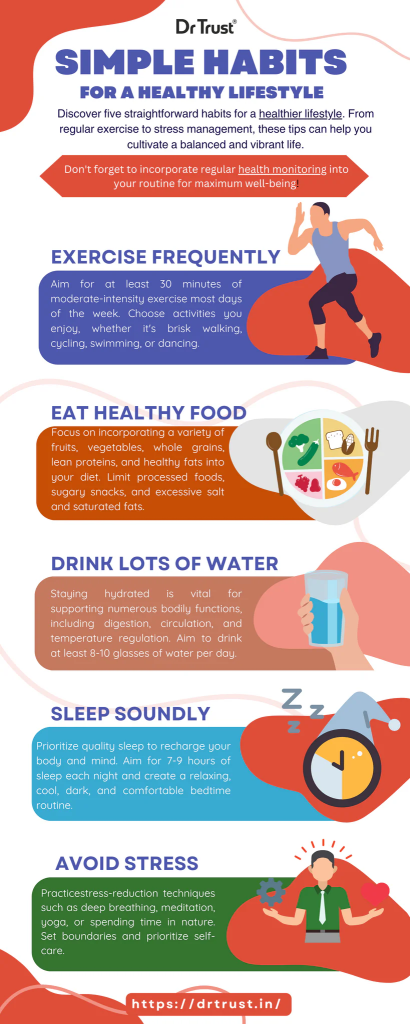Introduction to Outdated Health Rules

[Source: freepik.com]
Health advice changes faster than most people can keep up with. What was considered gospel truth about wellness a decade ago might actually harm your health today. The rigid health rules many of us grew up following are crumbling under new scientific research and better understanding of human biology.
Remember being told that skipping breakfast would ruin your metabolism? Or that you must eat at specific times to stay healthy? Modern research paints a different picture. In fact, studies show that strictly following inflexible eating patterns often backfires. A 2013 review of 25 studies published in Frontiers in Psychology revealed that restricted eating habits rarely led to weight loss and often resulted in weight gain instead [#1].
The problem with outdated health rules lies in their one-size-fits-all approach. Our bodies respond differently to various lifestyle habits based on our genetics, daily routines, and personal circumstances. What works perfectly for your colleague might be completely wrong for you. This explains why some people thrive on morning workouts while others perform better exercising in the evening.
Modern health science emphasizes flexibility and personalization over rigid rules. Similar to intuitive eating practices, listening to your body often proves more beneficial than blindly following outdated guidelines. Understanding which health rules no longer serve us helps create sustainable lifestyle changes that actually improve our wellbeing.
Common Outdated Health Rules

[Source: cnet.com]
Many traditional health guidelines we’ve followed religiously are now being debunked by modern science. Let’s examine some of these outdated rules and understand why they no longer hold up.
Dental Hygiene Misconceptions
That urge to brush your teeth right after meals? It might actually harm your dental health. Contrary to popular belief, brushing immediately after consuming acidic foods can damage tooth enamel because the acid temporarily softens it [#2]. Waiting 30-60 minutes after eating allows your saliva to neutralize the acid and protect your teeth.
Exercise and Calorie Tracking
Relying solely on fitness trackers for calorie burn calculations can lead to misleading results. Research shows these devices often miscalculate the actual calories burned during workouts . This inaccuracy can affect your metabolism and lead to improper nutrition choices.
Rigid Eating Schedules
The old rule of eating at fixed times daily ignores our body’s natural hunger signals. Modern nutrition science supports eating based on hunger cues rather than the clock. This flexibility helps prevent overeating and supports natural metabolic processes that affect weight management.
Sweet Food Restrictions
Complete elimination of sweets often backfires. Instead of banning all sugary foods, which can trigger binge eating, modern guidelines suggest mindful consumption. Small portions of quality desserts, enjoyed occasionally, fit perfectly into a balanced diet while preventing feelings of deprivation.
Excessive Exercise
Training until complete exhaustion isn’t the path to better fitness. This outdated approach can lead to injuries, burnout, and slower progress. Modern fitness experts recommend listening to your body and incorporating rest days for optimal results.
Modern Approaches to a Healthy Lifestyle

[Source: drtrust.in]
The science of health and wellness has evolved significantly, replacing rigid rules with flexible, personalized approaches. Research shows that sustainable health improvements come from lifestyle modifications rather than strict regimens [#3].
Personalized Sleep Patterns
Sleep needs vary by individual. Instead of adhering to the standard eight-hour rule, focus on sleep quality and your body’s natural rhythm. Some people function optimally with 7 hours, while others need 9. The key is maintaining consistent wake-up times and creating a relaxing bedtime routine.
Flexible Meal Timing
Modern nutrition science supports eating patterns that align with your lifestyle and hunger signals. A 2020 review of 121 studies found that no single diet outperforms others – variety and balance matter most . Listen to your body’s hunger cues and choose nutrient-rich foods that energize you throughout the day.
Smart Exercise Strategies
Gone are the days of marathon gym sessions. Modern fitness emphasizes quality over quantity. Mix high-intensity intervals with low-impact activities like stretching to prevent burnout and boost results. Regular movement throughout the day often proves more beneficial than a single intense workout.
Mindful Eating Practices
Instead of counting every calorie, focus on eating mindfully. Pay attention to portion sizes, eat slowly, and savor your food. This approach helps prevent overeating while making meals more enjoyable. Include a variety of foods rather than restricting entire food groups.
Individual Hydration Needs
The one-size-fits-all water intake rule has been replaced by personalized hydration guidelines. Your water needs depend on factors like climate, activity level, and diet. Monitor your thirst and urine color as natural indicators of hydration status rather than forcing yourself to drink a specific amount.
Challenges in Adapting to New Health Guidelines

[Source: dictionary.com]
Shifting from traditional health rules to modern, science-backed approaches presents several obstacles. Understanding these challenges helps create realistic expectations for lifestyle modifications.
Overcoming Misinformation
Social media and unreliable sources often spread outdated or incorrect health information. From questionable weight loss methods to unproven supplements, separating fact from fiction becomes increasingly difficult. Scientific research constantly updates our understanding of health, making it essential to verify information through credible medical sources.
Handling Social and Cultural Norms
Family traditions and cultural practices sometimes conflict with updated health guidelines. For example, skipping breakfast might work well for your body, but social pressure to eat morning meals with family could create stress. Similarly, certain cultures emphasize large portion sizes or specific eating times that may not align with your bodily needs.
Addressing Personal Roadblocks
Changing long-held habits requires patience and persistence. Many people struggle with hormonal influences on their eating patterns and weight management. Your body weight might fluctuate due to various hormonal factors, requiring a more nuanced approach than simple calorie counting.
Physical limitations also affect how we adapt to new guidelines. For instance, the standard water intake recommendation of 30ml per kilogram of body weight might need adjustment based on medical conditions, climate, or activity level .
Solutions for Success
- Start with small, manageable changes rather than complete lifestyle overhauls
- Track progress using apps or journals to identify what works for your body
- Consult healthcare professionals for personalized advice
- Join communities that support modern, evidence-based health approaches
- Stay informed through reliable medical journals and health organizations
Conclusion
Embracing Change for Better Health
Moving away from rigid health rules opens up new possibilities for personal wellness. Modern research shows that health guidelines work best when adapted to individual needs, lifestyles, and body responses. The key lies in listening to your body’s signals rather than following universal rules blindly.
Success in health management comes from understanding that what works for professional athletes or fitness models might not suit your daily routine. Instead of following strict regimens like those seen in celebrity workout plans, focus on sustainable habits that fit your schedule and energy levels.
The Future of Health Guidelines
Health recommendations continue to evolve with scientific discoveries. The focus shifts from one-size-fits-all approaches to personalized wellness strategies. This includes:
- Customized nutrition plans based on genetic factors
- Flexible exercise routines that match individual fitness levels
- Sleep patterns aligned with personal circadian rhythms
- Stress management techniques suited to specific lifestyle demands
- Hydration guidelines adjusted for climate and activity
Remember that health practices should enhance your life, not restrict it. While some people thrive on morning workouts and structured meal times, others perform better with evening exercises and intuitive eating patterns. The most effective approach combines scientific knowledge with personal experience.
As research advances, stay open to adjusting your health practices. What matters most is finding sustainable habits that support your well-being while fitting naturally into your daily life. Focus on progress over perfection, and celebrate small improvements in your health journey.